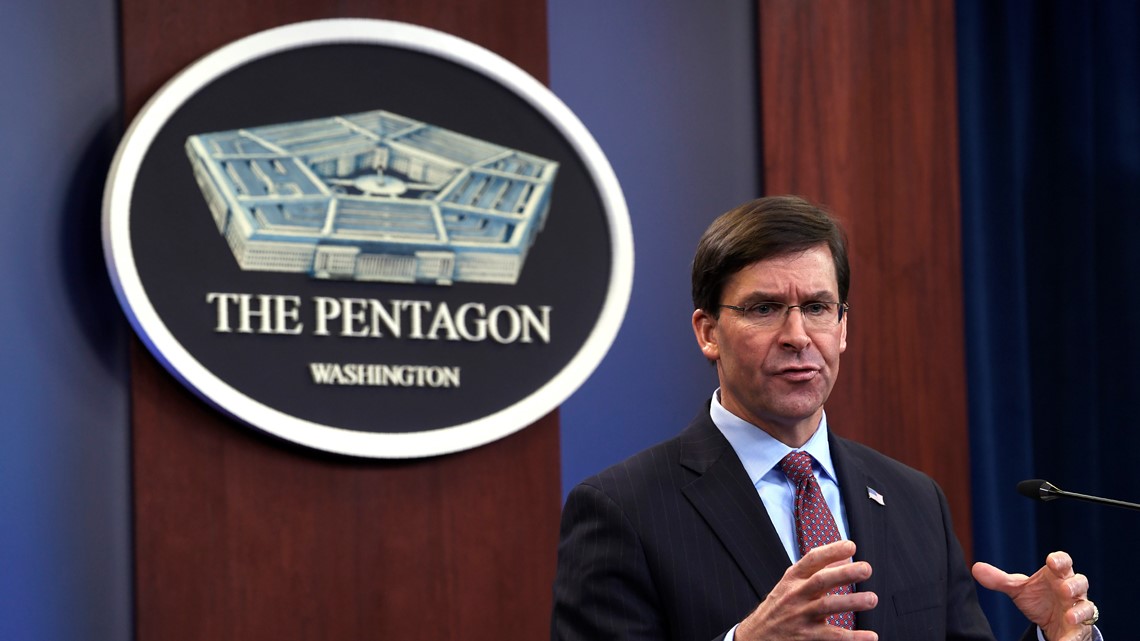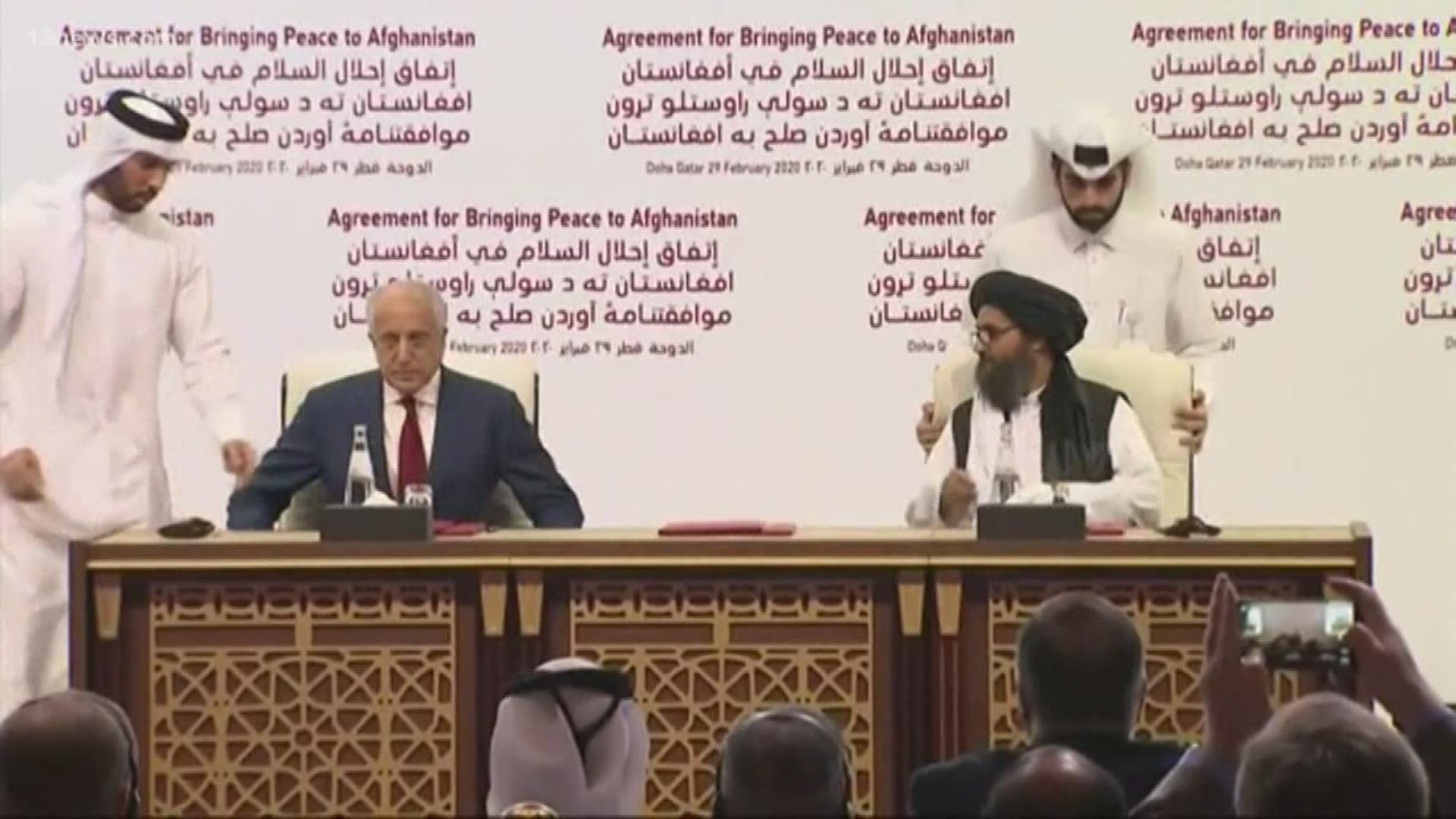WASHINGTON — The Trump administration's peace deal with the Taliban opens the door for the Pentagon to bring home thousands of troops in coming months. Although the pullout could halt if the peace process fails, Defense Secretary Mark Esper sees an initial U.S. troop drawdown as a step toward the broader goal of preparing for potential future war with China.
Esper has his eye on “great power competition,” which means staying a step ahead of China and Russia on battlefields of the future, including space and in next-generation strategic weapons like hypersonic missiles.
The U.S. currently has nearly 13,000 troops in Afghanistan. However, the Afghan peace deal has already hit its first snag, over prisoner releases.
Afghanistan's president says he will not free thousands of Taliban prisoners ahead of all-Afghan power-sharing talks set for next week, publicly disagreeing with a timetable laid out just a day earlier in the U.S.-Taliban peace deal.
President Ashraf Ghani's comments point to the first hitch in implementing the fragile deal, which is aimed at ending America's longest war and getting rival Afghan factions to agree on their country's future. Qatar's foreign minister tells The Associated Press in an interview that a prisoner swap is an important confidence-building measure.
More than 18 years after the Afghanistan conflict began in response to the September 11, 2001, attacks, the United States and the Islamists it toppled from power in Afghanistan signed a peace deal on Saturday.
The deal was expected to set the stage for the withdrawal of American troops. If the Taliban meet their commitments, all U.S. troops would leave in 14 months.
`Let's go home': Afghan war vets torn on US-Taliban deal
Veterans of America's longest war are torn as the U.S. signs a potentially historic peace accord with the Taliban in Afghanistan.
For many, the U.S. is overdue in withdrawing its forces after more than 18 years of fighting. Others are wary of the Taliban, whose hard-line government the U.S.-led forces overthrew in 2001.
Former Army Staff Sgt. Will Blackburn of Georgia said if the Taliban again seizes power, U.S. lives lost in the war will have been for nothing. Former Army Sgt. Michael Carrasquillo of Maryland was shot in an ambush in Afghanistan in 2005. He says peace in any form would be good.
A timeline of key events in Afghanistan's 40 years of wars:
The former Soviet Union marched into Afghanistan on Christmas Eve, 1979, claiming it was invited by the new Afghan communist leader and setting the country on a path of four decades of seemingly endless wars and conflict.
More than 5 million Afghans fled to Pakistan and 3 million to Iran after 1980.
After the 9/11 terrorist attacks, the U.S. invaded Afghanistan to oust the Taliban regime, which had harbored al-Qaeda leader Osama bin Laden.
Now, after an 18-year war, the possibility of peace has emerged as the United States and the Taliban have now signed a peace deal, one that could offer a glimmer of hope to war-weary Afghans.



